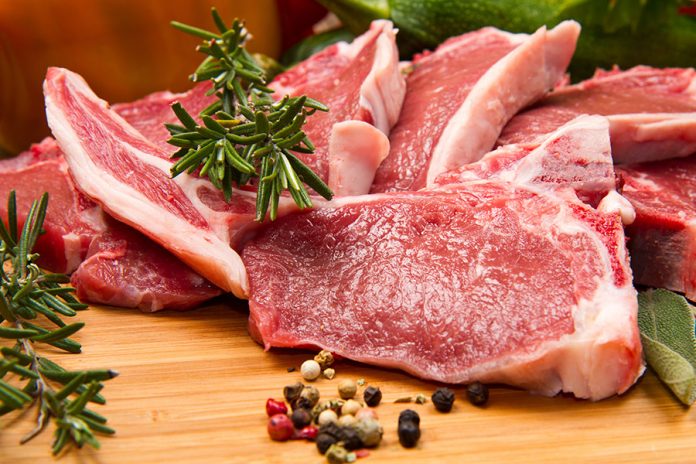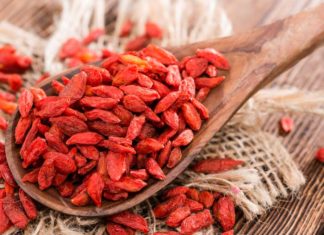
Organic meat is now the choice of many customers as a more healthy lifestyle choice.
There is a growing trend towards a better healthier way of raising our poultry. As the consumer is becoming more and more aware of the treatment of farm animals and the health benefit of their wellbeing to us and our health, the farmer is moving to a better way of farming.
Being an organic farmer is not as easy as you would think it is. The cost, regulation, and well as the lengthier time to get these farm animals to maturity put a heavy burden on the farmer.
Due to this significant cost and burden, many farmers tried to meet this organic farming trend halfway. Many have gone into free-range chicken or pigs or grass free cows. Therefore if you can, as consumer support the organic poultry farmer in the quest to provide us with healthier food.
Cows graze in a pasture at the University of New Hampshire’s organic dairy farm in Lee, N.H., in 2006.

Organic meat- choice for health
When food safety and hygiene become a big problem in many places all over the world, feed’s quality for livestock is getting worse as well, the trend of choosing organic food is becoming more and more popular. And organic meat is one of customers’ choice because of its benefits to our health and environment.
Organic meat is the meat of organic animal raised on organic land, fed with natural foods without using any added growth hormones, salbutamol, clenbuterol, genetically modified food. In fact, there is no concise definition of organic meat, farmers based on the general regulations of organic agriculture and organic food to give the general definition of organic meat as mentioned above.
And to evaluate whether meat is organic or not people use several standards which describe the specific requirements that must be verified, and these standards are different in each country. For example, in America, USDA standard is well- known for regulating the feed, living condition, environment, medicine that are allowed to use in organic pig raising.

USDA- an American standard for organic pork
In England, Soil Association standards are the most widely used, recognised, and trusted and have a strong international reputation. In Japan, JAS Standards for organic livestock products which took effect on November of 2005 is widely used in this country also.
In Australia, Nasaa (NCO) is an organic standard recognised in many countries. This is a comprehensive system controlling and creating the support for the development of organic production sector.
Organic certification will be issued when farmers demonstrate that they have a farming system that complies with this standard. The organic production system requires a constant and consistent commitment to following requirements.
Organic Management Plan: This is the first step that farmers must prepare to archive the NASAA – Australian organic certification, farmers will have to fill out the questionnaire in the organic management plan, which will be the basis for farmers to write an organic management plan later.
The second step is Farm Diagram: Identifying the parts of the farm used in the production of organic products. Each production area identified on the farm map will be numbered or have names related to the information and record files.
The third step is Records: The farmer must maintain a record for the inspector to review and check the procedures and production of organic products. The record includes farm diagram, input material records, harvest records, sales records, audit documents and other related records. And the final is No Parallel Production: the simultaneous production of both organic and non-organic products is not allowed for certified organic farms.

ACO – The most reputable organic standard in Australia
But the most reputable organic standard in Australia is ACO (Australian Certified Organic) which is revised with the newest version in 2017.
This ACO includes the basic requirements stated in the national standard on the organic product. ACO is recognised by IFOAM(International Federation of Organic Agriculture Movements) and CAC (Codex Alimentarius Commission) as the suitable standard for production of organic food according to national and international standard. ACO general production standard includes requirements such as soil fertility and health management, brought- in materials, stock and equipment, compost, water management and ecology, pest, disease and weed management, environmental management and social policy, contamination: soils and buffer zones. Besides, there are many requirements for specific sectors like miscellaneous production system, livestock production…
Now organic food is controlled strictly, and ACO is one of a few standards in the world which can remain very trusted by customers in Asia, Europe, and Americas. BUD logo of ACO standard can only be used on the packaging of products that have achieved organic certification. Customers can easily check whether a product is organic or not by finding the logo of ACO on the cover.
Let see the below information about the organic animal to know why its meat is certified as organic.
Feed for the animals:
Feed for the animal is organic products, not industrial products. Those feeds do not contain added growth hormones, weight gainers, salbutamol, clenbuterol, Genetically Modified food. Those fresh and clean feeds help prevent illness, disease, resulting in no usage of antibiotics. Therefore animals shall get be healthy, have a high content of enzyme, have better resistance, and the meat of animal can be stored for a longer time than normal meat.


Clove, grass, soybean…are organic feeds of organic animals
For example, with pig raising, feeds of the pig are rice bran, soybean, organic egg, organic milk, fish powder, synthetic vitamins, and minerals are also added to the diet of pigs. Several premixes and feeds that contain banned substances are not allowed to be used. For beef, feeds are organic grass and clover, fresh or dried roughage which is planted without using artificial fertilisers or antibiotics and few pesticide
Living conditions:
Animals are raised in specific farms which are designed with advanced technology to ensure the eligibility of each kind of animal so that they can develop well. The cleanup of the farm is always carried out professionally to eliminate the stench of animals’ waste, keep the environment clean and help get animal healthier. Animal health care is proceeded periodically to detect and prevent disease. Some kinds of vaccines, parasitic killers, can be used for this activity.
For example, to cows: they shall spend most of their lives outdoors on pasture, keeping cows indoors all their lives are banned, and when they go indoors because of bad weather or other reasons, they must be housed in a well-bedded spacious yard. Farmers often turn on music at a fixed time so that cows can relax. To pigs, they are raised in clean, dry farm, the bedding spacious yard can be made of paper, sand, sawdust; if the bedding yard is made of crop residues, they must be organic.
Cows graze in a pasture at the University of New Hampshire’s organic dairy farm in Lee, N.H., in 2006.

Organic animals live on specific farms
Being raised in an organic environment with organic standard and technology, that is why organic animals are much healthier than normal animals. Therefore, organic meat from organic animal contains higher protein content, nutrient content. The content of trace elements such as vitamins and minerals in organic meat is also higher than that in normal animals. Thus, the quality of organic meat is much better.

Quality of organic meat and non-organic meat is different
While ordinary meat sold at the market from normal animals which are raised in an industrial environment are fatter as animals are fed with feeds that contain weight gainers, salbutamol, clenbuterol to shorten the growing time of animals. These animals are fat but provide more lean meat and when cooked it usually has a smell to it. Eating this kind of meat, we do not find an immediate impact on human health, but for a long time, the poisons shall accumulate and cause serious diseases such as cancer.
The injection of growth hormones is quite common in some places. This also causes the growth hormone residue in normal meat which is very dangerous, especially for children. For normal livestock farms, wastes from animals which are not treated thoroughly shall have a bad direct impact on human health, reducing animal resistance, increasing morbidity, decreasing productivity, increasing costs. Resistance decline of animal will result in the risk of disease outbreaks.
Benefits of organic meat to health and environment
Because of the above-mentioned living conditions, the feed of organic animals, organic meat brings a lot of benefits to human’s health and environment.
Firstly, organic meat brings people the peace of mind when eating because organic meat is controlled strictly, this partly reduces the risk of food poisoning and cancer in the long run.
Using organic meat can reduce the exposure to phosphorus, one of many substances that are involved in the development of a child. Besides, Phosphorus is also responsible for the increased risk of autism and ADHD in children.
Organic meat from an organic animal raised in the pasture has a higher content of CLA- Conjugated Linoleic Acid, a fatty acid that can protect the cardiovascular system.
There is no usage of GMO feed for livestock at organic farms; then people can protect their immune system by eating organic meat.

The benefit of organic meat to human’s health is obvious.
Organic meat is rich in protein, vitamin, mineral which are sources of nutrients to regenerate muscle. Organic meat does not contain chemical substances and antibiotics, therefore reducing the risk of antimicrobial resistance which is now becoming a serious problem to all nations.

Using organic meat- one way to protect environment
Secondly, organic meat and organic food, in general, is a solution for stable environment development because organic production based on the balance of the ecosystem. During the raising of organic animals, no usage of chemical substances contributes to reducing the use of renewable energy, increasing the carbon of the soil, contributing to reducing the greenhouse effect and the warming of the earth. Organic products from living animals do not use insecticides, pesticides, so they partly help reducing soil erosion, reducing soil and water pollution.
Thanks to the emphasis on hygiene at the organic farm, the environment surrounding can also be improved. Organic food and organic meat production help increase biodiversity. The conservation of natural resources and biodiversity is a core principle of organic agriculture. This model helps ensure a friendly environment, maintaining organic farming benefit to farmland and animals.
With obvious benefits that organic meat brings to us, the choice of using organic meat and organic food become indispensable, not only in developed countries but also in developing countries where the awareness of health has been gradually improved to protect human’s health and environment. Besides organic meat, other kinds of organic foods are the best products for human as well.
For further information on organic food, please read our latest articles on the website: https://naturalorganicliving.com.au. We hope the helpful information on organic food and organic farming help you and your family have a better understanding of what food you are eating and the choices you are making.










